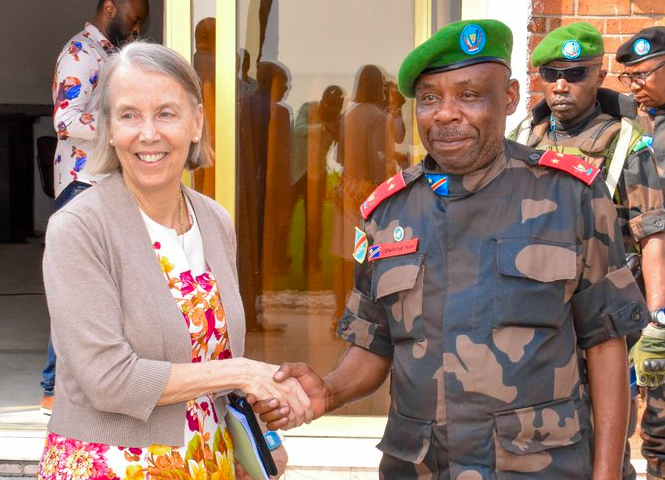On Friday, February 23, 2024, during a meeting with the military governor of North Kivu in Goma, the United States Ambassador, Lacy Tamlyn, reiterated the suspension of military partnership between the United States and Rwanda due to the ongoing conflict in the Democratic Republic of the Congo (DRC). Ambassador Tamlyn clarified, “We have stopped military assistance to Rwanda. The United States does not support the Rwandan military; we do not provide them with weapons or equipment.”
This suspension, contrary to some reports by Congolese media suggesting its recent implementation, dates back to October 2023. The United States took this action in response to Rwanda’s alleged support for the M23 rebels in eastern Congo, including accusations against Rwandan President Paul Kagame’s forces for facilitating the recruitment of child soldiers. The decision by the Joe Biden administration to halt military assistance was influenced by Rwanda’s inclusion in the 2023 Child Soldiers Prevention Act (CSPA) list. This law, established in 2008, aims to eliminate the recruitment and use of children in armed conflicts. The inclusion on the list signifies that the Rwanda Defense Force (RDF) has been found to support the March 23 Movement (M23), an armed group implicated in recruiting or using child soldiers in the conflict in eastern DRC.
However, experts have noted that the military aid the United States provided to Rwanda was not substantial enough to act as a deterrent. Rwanda relies on foreign aid for up to 37% of its total annual budget. According to these experts, a direct budget support suspension and a United Nations arms embargo would be more effective measures.
Amid these developments, President Félix-Antoine Tshisekedi of the DRC has been advocating for more stringent sanctions from the United States against Rwanda, highlighting its active involvement in the deteriorating security situation in eastern DRC. In a report from the Government spokesperson following the cabinet meeting on February 23, President Tshisekedi emphasized Rwanda’s role as a barrier to peace in North Kivu, attributing it to hegemonic ambitions that threaten to turn integral parts of national territory into colonies for exploitation and settlement.
President Tshisekedi also urged the African Union to effectively implement the plan from the Nairobi and Luanda processes, which remains the universally accepted solution to the current crisis.





























































